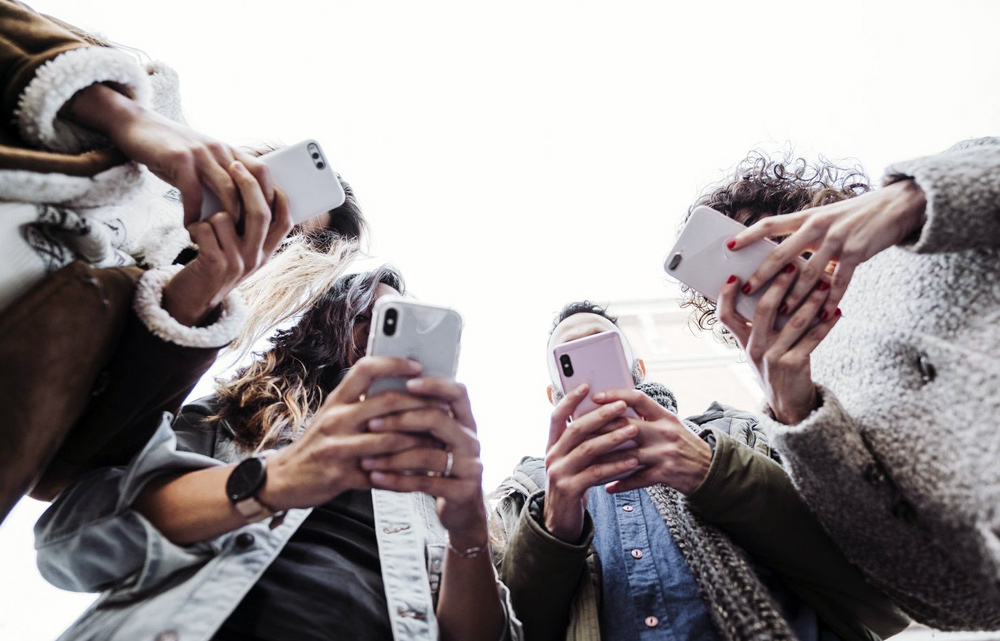The internet has become an indispensable part of modern living. The global population uses the internet for a variety of reasons at all hours of the day and night. However, we may or may not know that browsing the internet has become more than a habit; it has become an addiction. This addiction is also the cause of an alarming increase in mental illnesses among individuals all over the globe. It is a mental dependency that impairs a variety of life tasks. Not only does internet addiction have a negative effect on your psychosocial functions, but so does internet gaming disorder (IGD). Excessive internet use has been linked to a variety of psychiatric and psychosocial illnesses.
Internet addiction (IA) and internet gaming disorder (IGD) have become increasingly prevalent in recent years, leading to a variety of personality and psychiatric illnesses such as low self-confidence, impulsiveness, poor sleep quality, emotional disorders, and suicide.
You may be having “problematic Internet use” if you feel compelled to continually monitor your accounts on social media or play games, giving up sleep in order to achieve new levels.
Symptoms:
- Depression and anxiety, Guilty feelings, Inability to prioritise or keep note of deadlines, Isolation, as well as a lack of interaction, Losing track of time, Procrastination, irritability and mood fluctuations, Fearful feeling, boredom with routine chores, Hinders your productivity.
- Backache And Neck Discomfort, Numbness And Weakness in the Hand And Limb are Symptoms of Carpal Tunnel Syndrome, Recurring Migraines, Insomnia, Nutritional Deficiencies, Personal Sanitation Issues, Dry Eyes and other vision issues caused by Prolonged Screen Time, Gain or Loss of Weight
Effects of internet addiction on Mental Health
Because social media is a relatively recent development, there has been little study to determine the long-term consequences, positive or negative, of its use. Multiple studies, however, have discovered a significant association between excessive social media use and a higher likelihood of anxiety, loneliness, depression, self-harm, and even contemplation of suicide. Negative events may be promoted by social media, such as:
- Feeling inadequate about your circumstances or appearance. Even if you are aware that the images you see on social media have been manipulated, they can make you feel anxious about how you appear or what is going on in your own private world. Similarly, we are all aware that others prefer to share only the high points of their lives, and rarely mentioning the difficult times that everyone goes through. But that does not stop you from feeling envious and dissatisfied.
- FOMO (fear of missing out): While FOMO has existed far longer than social media, sites like Facebook and Instagram appear to amplify sentiments that others are having more fun or leading better lives than you. The feeling that you are losing out on certain things, similar to an addiction, can lower your self-esteem, cause anxiety, and fuel even more social media use.
- Isolation: Loneliness: It has been discovered that excessive use of Facebook, Snapchat, and Instagram enhances rather than reduces feelings of loneliness. In contrast, the research discovered that limiting your use of social media can make you feel less lonely and isolated, as well as improve your overall wellbeing.
- Depression and anxiety: In order to be psychologically healthy, humans require face-to-face contact. Nothing reduces stress and improves your happiness more quickly or effectively than making eye contact with someone who cares about you. The more you value social media engagement over in-person relationships, the more likely you are to acquire or worsen mental health conditions such as anxiety and depression.
- Cyberbullying: Approximately 10% of teenagers report being bullied on social media, and many other users receive offensive comments. Twitter, for example, can be a hotspot for disseminating malicious gossip, fabrications, and harassment that can leave long-lasting emotional scars.
- Self-absorption: Posting endless photos and personal feelings on social networking sites can lead to an unhealthy sense of self-importance and isolate you from relationships in real life.
Types Of Internet Addiction

While no official criteria for diagnosing internet addiction have been established, researchers have found 5 groups of specific kinds of internet and computer dependencies.
Cybersex Addiction: Online pornographic material, adult web pages, sexual fantasy/adult discussion boards, and Explicit webcam services are all part of it.
Net Compulsions: Online gambling, stock trading, auction websites (e.g., eBay), and online shopping addiction are examples of interactive pursuits that can be highly harmful.
Cyber (Online) Relationship Addiction: Deeply engaged in online dating and relationship maintenance, often neglecting, and abandoning actual friends and relatives.
Compulsive Information Seeking: The ability to easily locate information on the World Wide Web has resulted in an uncontrollable desire for collecting and organizing data. In some instances, seeking knowledge is an indication of previously existing obsessive-compulsive behaviors.
Computer Or Gaming Addiction: Involves both internet and offline computer-based activities. Excessive computer game playing has rapidly became an issue in certain settings, according to researchers.
Treatment
In order to start suitable internet addiction treatment, we have to first recognize and acknowledge the condition. When you suspect there is a problem, you must seek treatment and be ready to recover. There must be a major positive change in your behaviour. You can use tools to restrict your access to certain websites. Once can seek professional assistance, and there are therapies, counselling, and medications that have been shown to be successful. One may need to seek therapy in order to recover. Physical activity is also essential in the recovery process of internet addiction; you must relax and practice yoga on a regular basis to remain calm and focused. You can join groups that will help you alter your actions and stay enthusiastic, or you can seek assistance from peers or a dependable family member. You can also try new activities and look for alternating entertainment to keep your mind busy.
Conclusion
We live in the digital era and are constantly surrounded by technology. It is simple to succumb to temptation in this situation. Everything, from ordering meals to purchasing clothing, is just a few mouse-clicks away! Nevertheless, there is a fine line between appropriate and excessive internet use, and one must tread cautiously. It may not always be about how much time you invest on the internet, but how you utilize the internet is critical. Internet addiction can lead to social, physical, and mental problems; therefore, you must take suitable steps to limit your internet use and prevent dependence before it is too late.
Internet Addiction is a major concern for the field of public health in general as it is altering the lifestyle of humankind. Completing an MPH course can help potential public health research specialists understand the field and develop the information, aids, and capabilities that can lay the foundation for success. We at Athar Institute of Health and Management Studies (AIHMS) provide MPH degree at an affordable fee providing students with the best opportunities to combine their studies with practical experience.

